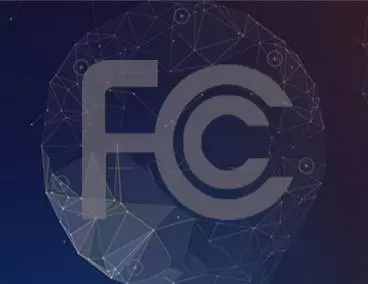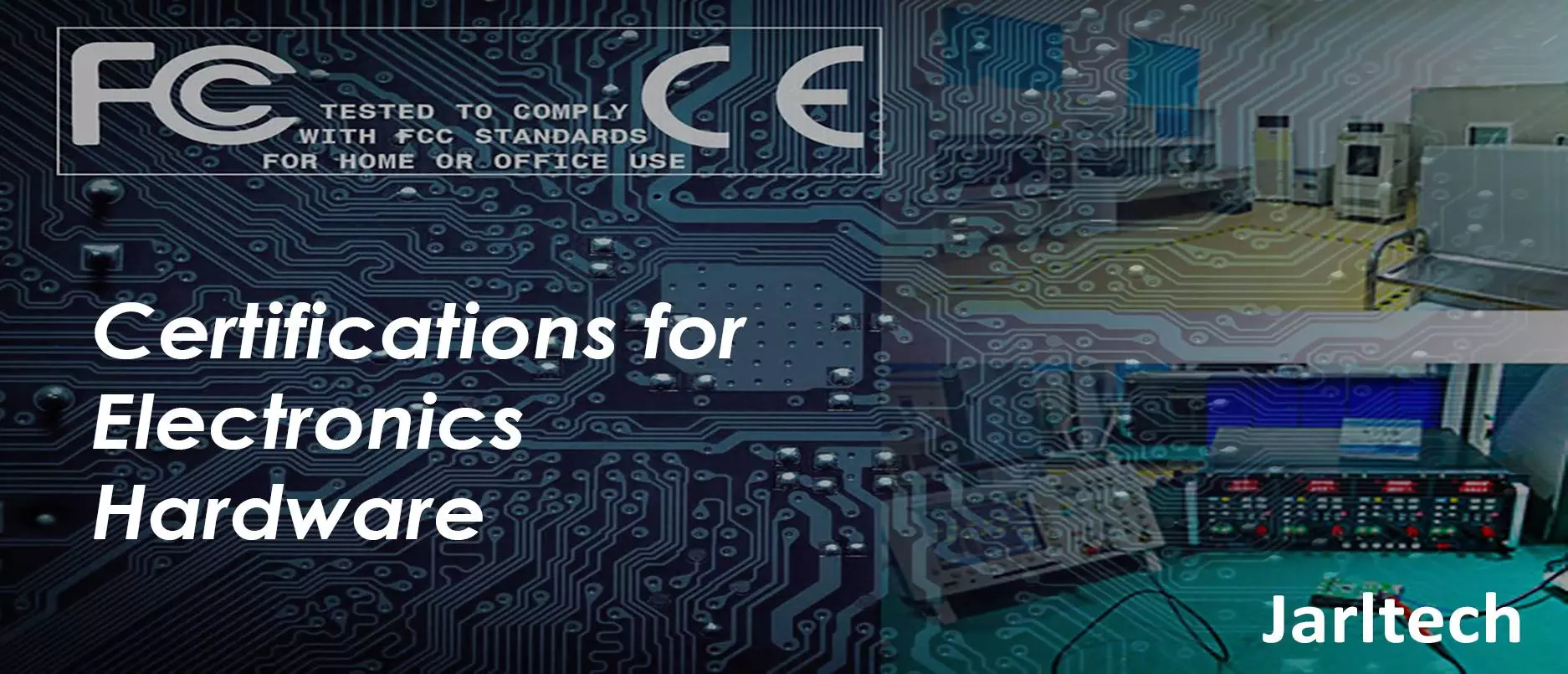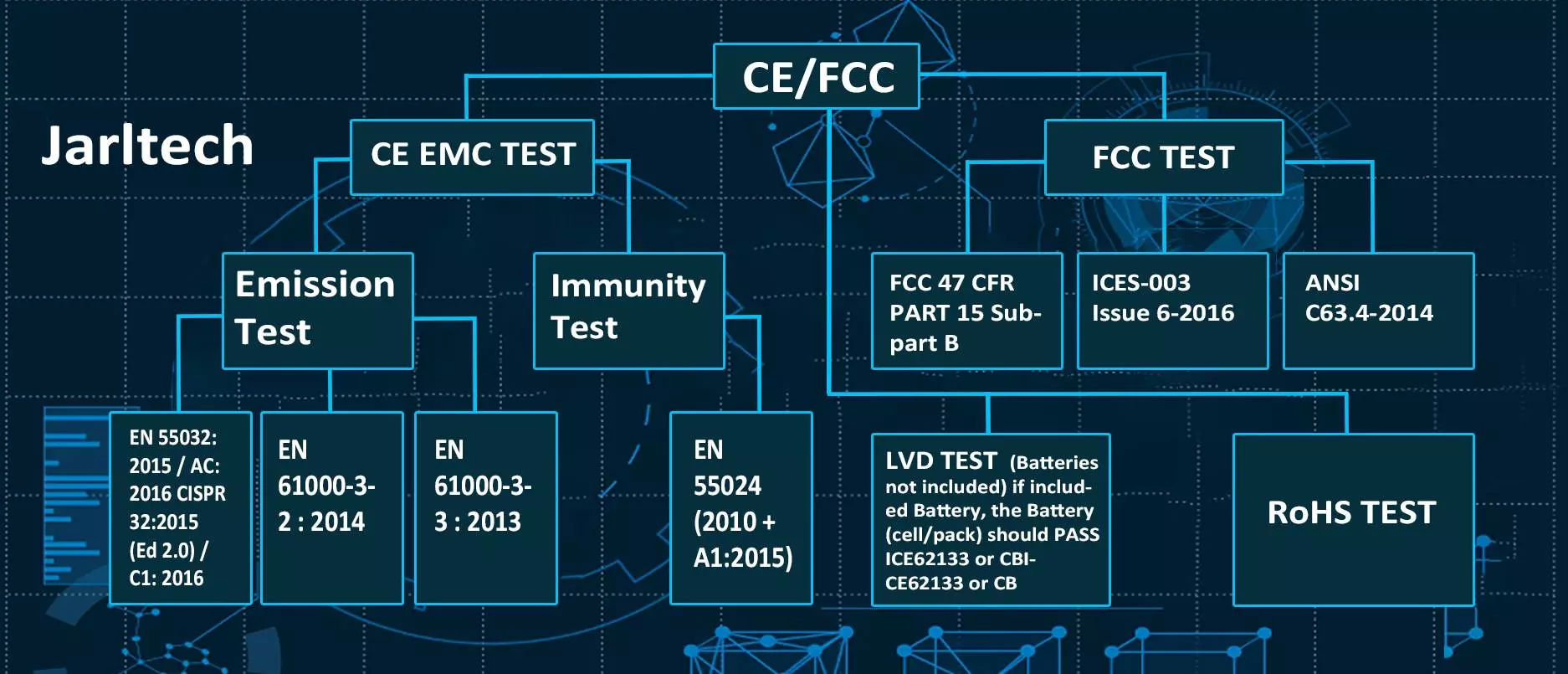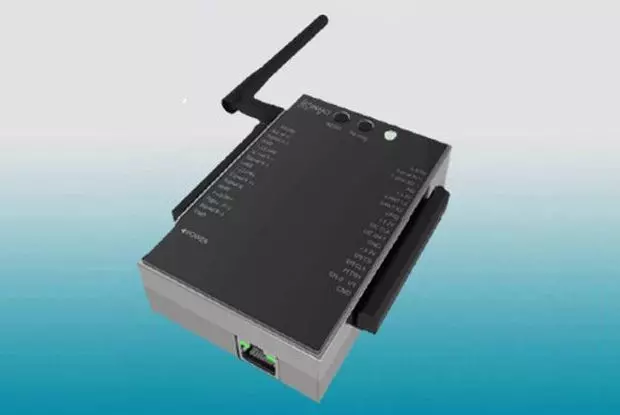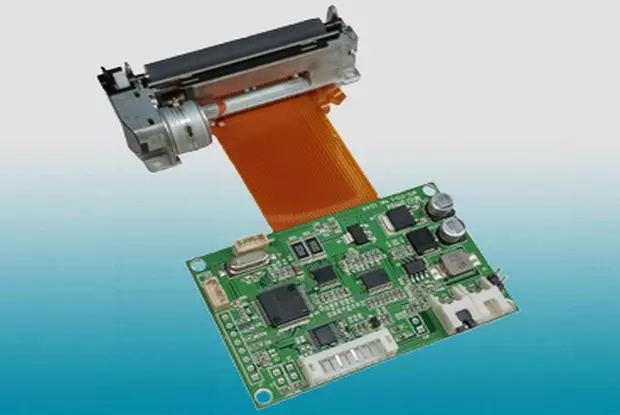Electronics Certifications
What factors should be taken into account when pursuing certification in electronic hardware?
Jarltech provides expert guidance on the certifications required for your product based on its design.
We offer all essential testing resources, including access to our lab, testing environment, and accredited regulators. Additionally, we provide a comprehensive overview of electronics certification to assist you through the process.
What factors should be taken into account when pursuing certification in electronic hardware?
It is not possible to ship your product to customers until the relevant certifications have been completed. Therefore, it is important to factor in the time and cost associated with these certifications in your project plan. It is advisable to avoid rushing the process, as testing too early, before major design changes are finalized, can lead to wasted time and expense if retesting is required. For instance, it would be prudent to wait to schedule certification tests until your manufacturing processes are mostly settled and you've addressed at least 80% of design issues.
Furthermore, regulatory requirements may necessitate the submission of instructional manuals with the test unit. Therefore, it is essential to ensure that the manual is finalized before testing. Additionally, it is crucial to note that certification requirements can vary by country and even by state. Conducting thorough research into the specific requirements is vital to avoid investing time and resources in unnecessary tests and to guarantee that all essential certifications are completed.
Common certifications
• FCC Certification
• CE Marking
• UL & CSA Certifications
• RoHS and/or WEEE Certification
• BlueTooth SIG
Do I need FCC certification?
• My electronic product oscillates at 9 kHz or higher
• My objective is to manufacture and/or market my product in the United States.
Why is this necessary?
Electronic products with oscillating signals emit some level of electromagnetic radiation (radio waves), and FCC certification is required to ensure these emissions do not interfere with communications. The vast majority of products fall into this category, with only a few exceptions. To determine whether your product requires FCC certification, please refer to the relevant regulatory documents or consult an accredited test lab. Without the appropriate certification, it is illegal to import, sell, or lease equipment in the United States.
There are two classes of FCC testing: Class A and Class B. Class A is designed for products intended for industrial use and is generally easier to pass. In contrast, Class B is for consumer products and requires more rigorous testing to ensure they meet the higher standards for electromagnetic emissions.
There are two categories of FCC certifications: intentional radiators and unintentional radiators. Intentional radiators include devices with wireless functions, such as cell phones, Bluetooth, and Wi-Fi connections. Unintentional radiators encompass devices that emit electromagnetic energy without intentionally generating radio frequency signals, such as televisions, digital cameras, and microwave ovens.
Electromagnetic emissions are assessed in a specialized environment known as an anechoic chamber. This chamber is equipped with sensors to measure electromagnetic emissions and is designed to absorb all surrounding radiation. Most companies lack an accredited in-house FCC lab, and renting such a testing chamber can cost nearly $1,000 per hour. Each testing session usually lasts several hours, and multiple sessions with adjustments are often required for a product to pass emissions testing.
What is the optimal approach?
•It may be beneficial to engage a third-party testing company to leverage their expertise in obtaining certification and conducting all necessary FCC testing.
Do I need CE Marking certification for my product?
• My objective is to market and/or manufacture my product in Europe.
Why is this necessary?
The CE marking attests that a product meets the EU's safety, health, and environmental standards. It is a mandatory requirement for products sold and used in the 27 EU member states, as well as Iceland, Norway, Liechtenstein, Switzerland, and Turkey, regardless of whether they are imported. The certification process typically takes approximately one month and costs vary depending on the product type, as each product category has its own specific standards.
What is the optimal approach?
It is the responsibility of the manufacturer to affix the CE marking once all requirements have been met and to ensure CE compliance. However, a knowledgeable third-party testing or certification body can assist with obtaining the certification or modifying the product to meet the necessary standards.
Do I need UL and/or CSA certification?
• This electronic product is designed to connect directly to an AC outlet, including battery-powered devices with battery chargers.
• My electronic product does not have a direct plug-in connection to an AC outlet. However, I require liability insurance and/or intend to sell it through a major retail chain.
• My objective is to market or manufacture my product in the United States or Canada.
Why is this necessary?
While UL certification is not a mandatory requirement for selling products in the US, failure to obtain it leaves businesses exposed to liability for safety issues, such as electrical fires. UL certification provides coverage in cases like the Galaxy Note 7 incident. Additionally, although it is not a national requirement, many large retail chains and insurance companies still require UL certification as a safety precaution, regardless of whether the product plugs into an AC outlet.
CSA certification is an alternative to UL and is recognized in both Canada and the United States
There are numerous UL certification types, and identifying the ones relevant to your product can be challenging. Consequently, many new products are sold directly to consumers online to circumvent the UL certification requirements necessary for insurance coverage or retail store placement.
What is the optimal approach
Even if UL testing is not a goal, it is advisable to engage the services of a third-party UL expert to review the design. The input of an expert during the certification process can be invaluable in identifying potential product failure points that might otherwise be overlooked.
Do I need RoHS or WEEE certification?
• My objective is to sell my product in California or the European Union.
Why is this necessary?
Obtaining RoHS certification ensures that your product complies with restrictions on 10 hazardous substances, including lead, mercury, and cadmium. It is important to note that failure to obtain RoHS certification can result in fines and penalties for manufacturers.
In the European Union, the WEEE regulation works in conjunction with RoHS to guarantee that electronic products are designed for secure disposal and environmentally conscious recycling.
What is the optimal approach
Obtaining RoHS certification is a relatively straightforward and cost-effective process. Many contract manufacturers are equipped to handle the compliance requirements. Should your manufacturer not be able to assist, RoHS consultants can ensure your product meets the guidelines and is properly documented. Alternatively, you can send your product to a RoHS lab for testing, which usually takes about two weeks.
Do I need Bluetooth SIG certification?
• I want to use the Bluetooth name or logo on my product.
Why is this necessary?
The Bluetooth Special Interest Group (SIG) is responsible for establishing standards and licensing for the Bluetooth trademark. In order to market your product as Bluetooth-compatible, you are required to register it, have it tested in a certified laboratory, and pay the requisite trademark usage fees.
What is the optimal approach
It is essential to promote Bluetooth technology in your device to enhance its market appeal. Investing in Bluetooth SIG certification is a valuable strategy for showcasing this capability.
Conclusion
It is estimated that approximately 50% of consumer electronic products fail to pass standard certification testing on their first attempt. Certification tests are both costly and time-consuming, often requiring multiple rounds to achieve a passing grade. To save time and money, it is advisable to consult with an accredited third-party expert. They can identify the necessary certifications, guide your product design to meet those requirements, and provide a single point of contact for the testing lab, environment, and accredited regulators.
It is crucial to be proactive and well-informed. Effective planning for the time and costs of testing is essential for success. For added efficiency, consider partnering with a company that understands your certification requirements and can handle the entire process. Contact Jarltech to learn how we can assist with your electronics hardware certifications.

